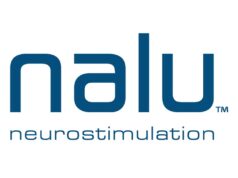 At this year’s North American Neuromodulation Society (NANS) annual meeting (18–21 January, Las Vegas, USA), Medtronic announced new data from two clinical trials demonstrating the benefits of its spinal cord stimulation (SCS) technologies in patients with chronic low back pain (CLBP) and leg pain.
At this year’s North American Neuromodulation Society (NANS) annual meeting (18–21 January, Las Vegas, USA), Medtronic announced new data from two clinical trials demonstrating the benefits of its spinal cord stimulation (SCS) technologies in patients with chronic low back pain (CLBP) and leg pain.
The first of these late-breaking presentations featured one- and three-month outcomes from the company’s closed-loop SCS study in Australia, which is evaluating the long-term performance of a closed-loop system and overall patient experience with Medtronic’s investigational, next-generation, rechargeable spinal cord stimulator. The system in question is approved in Europe and Japan, but is not approved for sale or distribution in the USA or Australia.
The multicentre, prospective, randomised crossover study ultimately met its primary objective, with 89% of subjects reporting a significant reduction in overstimulation relative to open-loop stimulation (n=28, p<0.001) and 86% reporting a preference for closed-loop stimulation during blinded testing at one month.
In addition, clinically meaningful improvements were observed in pain, physical function and quality of life at three months with closed-loop SCS. Long-term follow-up for pain and related outcomes had a single-arm study design, a company press release notes. The study also met its secondary objective, with 86% of subjects (n=51) reporting a reduction of 50% or more in overall back and leg pain at three months.
According to Medtronic, at three months, 100% of subjects reported satisfaction with closed-loop SCS therapy and more than 80% of subjects (n=54) were able to achieve their stated activity goals for daily living with SCS therapy without fear of pain or therapy side-effects. And, although the study did not include a weaning protocol, 35% of subjects (n=37) on opioids at baseline reduced/stopped use at three months, and morphine milligram equivalent reduced from 73.5 to 54.
“These early promising results suggest that closed-loop SCS may offer real benefits over fixed-output stimulation,” said lead investigator Marc Russo (Hunter Pain Specialists, Newcastle, Australia). “Could closed-loop SCS eventually become the standard of care? More data are needed, but what we are seeing thus far is encouraging.”
As per another NANS 2024 presentation, 24-month data from a post-market randomised controlled trial (RCT) conducted across 12 sites in four different European countries have demonstrated the long-term superiority of Medtronic’s differential target multiplexed (DTM) SCS versus conventional medical management (CMM) for indicated chronic back pain patients who are ineligible for spine surgery.
The presentation included two-year outcomes comparing the company’s proprietary DTM SCS waveform to CMM, with the former being associated with a superior back pain responder rate in patients with CLBP at 12, 18 and 24 months. At 24 months, patients using DTM SCS also experienced a 77% reduction in CLBP, a 93% leg pain responder rate (subjects with ≥50% leg pain relief), and a significant reduction in extent of disability as measured by the Oswestry disability index (ODI; >26 point average ODI reduction). Additionally, some 95% of patients were “satisfied or very satisfied” with DTM SCS treatment at 24 months, Medtronic claims in its recent release.
“As the first DTM SCS RCT in Europe, these results provide additional evidence of the clinical and quality-of-life benefits that DTM SCS offers this patient population, which has few available treatment options,” said Jan Willem Kallewaard (Rijnstate Hospital, Arnhem, The Netherlands), the study’s lead investigator.
“Insights gained today from new clinical evidence pave the way toward the revolutionary therapies of tomorrow, and Medtronic is proud to be leading the way at NANS 2024 with 26 accepted clinical abstracts,” stated Paolo Di Vincenzo, president of the Neuromodulation business, which is part of the Neuroscience portfolio at Medtronic. “We are committed to advancing the field of neuromodulation through rigorous scientific research in order to deliver on our mission to alleviate pain, restore health, and extend life to patients around the world.”












